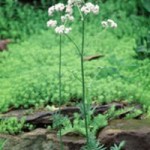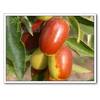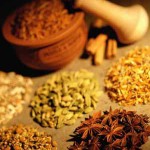 One of the most commonly used Chinese herbs is licorice root and Web MD recently mentioned how licorice root can help prevent and treat tooth decay and gum disease.
One of the most commonly used Chinese herbs is licorice root and Web MD recently mentioned how licorice root can help prevent and treat tooth decay and gum disease.
According to a new study in the Journal of Natural Products, licorice root may help keep teeth healthy. But you won’t find the beneficial ingredients in licorice candy. Licorice candy is mostly sugar and in the U.S. often flavored with anise oil.
The herb licorice root is in nearly every herbal formulations in Traditional Chinese Medicine. The main reason for its popularity is its sweet flavor and its remarkable ability to guide other herbs to all 12 channels in the body. This might sound a little odd, but if you’ve ever dug up a small licorice plant you can see the roots tend to go in all directions. It is an interesting quality about this herb, because many herb roots don’t travel outwardly, they simple grow down. But the licorice plant has roots that are born to run.
I was once digging up a small 5 foot tall licorice that has meandered into the wrong garden space. As we followed the roots to clean up the space, they went 10-15 feet in several different directions. This Chinese herb seems to act the same way in the body and this is often why a very small amount, usually 3%- 6% of Traditional Chinese herb formulas often contain licorice. (Also known as Gan Cao.) Gan Cao helps other herbs in a formula travel to all 12 channels in the body. This is a very rare quality, there are only a few herbs with the ability to travel to all areas of the body.
I consider it an added bonus that licorice prevents tooth decay. A very small amount of licorice (3%) is found in our iSleep Herb Pack. It has traditionally been part of the 800 year old formula that iSleep is based upon. No reason to change something that 800 years of use has already proved successful.
The Active Ingredients
The two predominant compounds in licorice, licoricidin and licorisoflavan A, were found to be the most effective in inhibiting the growth of cavity-causing bacteria. These and other compounds found in licorice root were also shown to prevent the growth of bacteria associated with periodontitis, an inflammatory disease that can destroy the bones, gums, and tissue that maintain teeth.
Warnings about the effects of licorice for those with high blood pressure need some explanation. Studies on licorice root extract have shown a dose of 60 grams or more per 100g formula had side effects. However, this dose is at least 10X higher than the safe and recommended dosage used in Traditional Chinese Medicine. Licorice has been used safely and effectively for thousand of years. There is no documented historical use of licorice ever being used in Traditional Chinese Medicine at a dose of 60 grams in a 100g formula. Like anything, if you abuse an herb, just like caffeine, or any drug, there can be serious side effects. It is always important to know the safe and correct dose of any medication.
P.S. Licorice root raw slices have a lovely little flavor if you need something healthy to chew on during the day. All Chinese markets sell them because they are often thrown into soups or used for a cup of tea. A lovely Asian tradition that we now know also protects our teeth.

 Do you have enough energy to stay ahead of the game?
Do you have enough energy to stay ahead of the game? 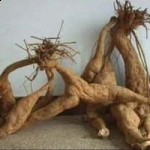
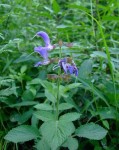 New evidence now exists about the Chinese herb, Salvia Miltiorrhiza. This herb has been used for thousands of years and has been praised for its benefits for cardiovascular disease. The latest study on Salvia Miltiorrhiza indicates that this Chinese herb can also be beneficial to those suffering with osteoporosis, a thinning of the bones or loss of bone density over time.
New evidence now exists about the Chinese herb, Salvia Miltiorrhiza. This herb has been used for thousands of years and has been praised for its benefits for cardiovascular disease. The latest study on Salvia Miltiorrhiza indicates that this Chinese herb can also be beneficial to those suffering with osteoporosis, a thinning of the bones or loss of bone density over time.
